Gilbert’s Syndrome and High Bilirubin: Learn Hidden Cause of Gut/Brain Issues
Signs and Symptoms of Gilbert’s Syndrome in Adults
My new ONLINE COURSE for Gilbert’s Syndrome is here! The most complete resource on Gilbert’s Syndrome: Living with Gilbert’s Syndrome – True Health Synergy (simplero.com)
You can also follow my Instagram page Gilberts_Syndrome_Support for all things Gilbert’s, my clinical insights and recommendations.
Common Symptoms that people with Gilbert’s Syndrome experience:
Do you find that your bowel movements are all over the place regardless of whether you eat the same foods?
Do you suffer from constipation or loose stools, especially stools in yellow/mustard colour that float (sorry for the gory details)?
Have you ever had yellowing of skin/eyes -jaundice?
Are you often really fatigued for no reason?
Has your gallbladder been taken out, or have your parents/grandparents had gallbladder issues or had it removed?
Do you feel nauseous after eating fatty foods or generally struggle to digest fats?
Do you struggle to tolerate alcohol, even in small amounts?
Have you been diagnosed with SIBO or IBS?
Do you suffer from depression and/or anxiety?
Do you suffer from estrogen dominance period symptoms: heavy periods, painful periods, shorter or longer cycle length, PMS?
Is your Bilirubin high on blood tests?
People with Gilbert’s Syndrome have a higher predisposition to these issues.
High Bilirubin on blood tests
Gilbert’s Syndrome presents as high Bilirubin on standard Biochemistry blood test results. Chances are you’ve been told constantly high Bilirubin is ‘benign’ and nothing to worry about. This is far from the truth.
Gilbert’s Syndrome is genetic and involves several SNPs (genetic polymorphism- variation) on the UGT1A1 gene/enzyme. This is usually only picked up on a gene analysis like 23andme and is something I test for in-clinic when I see continuously high bilirubin levels on my clients’ blood test results.
Often there are other enzymes in the glucuronidation area (one of the liver’s key phase 2 detox pathways) that are not functioning 100%.
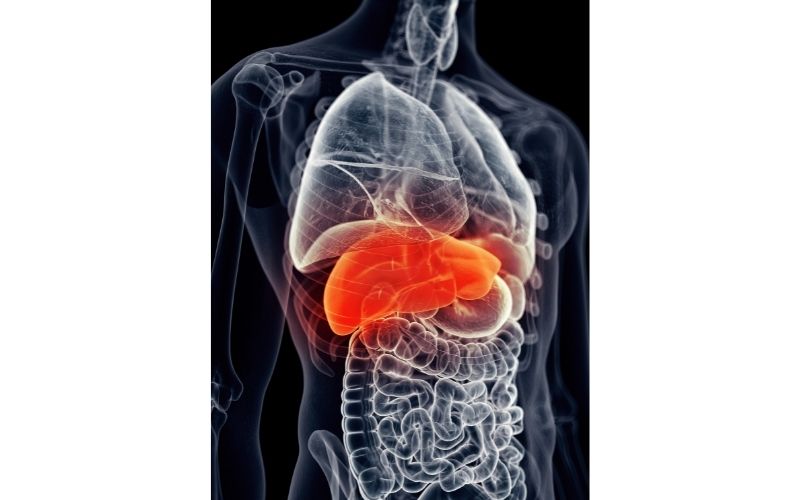
Genetic research shows that over 75% of those with Gilbert’s Syndrome have multiple SNPs that affect the glucuronidation pathway in the liver.
The glucuronidation enzymes are crucial to phase 2 detox in the liver in its job of toxin removal, and in people with UGT polymorphisms, these enzymes function at only 30-50% capacity.
This means that people with Gilbert’s have a much lower ability to clear out toxins from the liver. Also, if they are female, there is often a reduced ability to break down and detoxify hormones such as estrogen. This often leads to numerous hormonal symptoms and can be very pronounced during times of hormonal disruption: puberty, pregnancy, and menopause.
Often people with Gilbert’s are born with jaundice that is resolved in the hospital at birth using light machines. Of course, there are other reasons for high Bilirubin in bloods, such as hepatitis and liver cirrhosis. That’s why confirming with a genetic test is valid.
Often Gilbert’s disease begins to express during puberty (this can be the first time that high Bilirubin is noticed on blood tests), which is a time of hormonal upheaval with a massive influx of hormones needed to be broken down and detoxified by the liver’s glucuronidation pathway.
Most of my patients who test positive for Gilbert’s Syndrome have digestive and psychological symptoms such as depression and anxiety.
Studies have shown that only about 10% of people with Gilbert’s Syndrome are asymptomatic.
The reason I have been researching Gilbert’s Syndrome is that I have the gene and the Syndrome. I have had high bilirubin levels my entire life, undiagnosed until I tested for the gene later in life.
My anecdotal clinical experience shows that many people who have high Pyrroles often also have Gilbert’s Syndrome, and my theory is that this is due to the liver’s poor ability to break down haem. Bilirubin and Pyrroles are both by-products of haem breakdown in the glucuronidation pathway in the liver.
Furthermore, many people with Gilbert’s do not do well when exposed to mould or other environmental toxins, as the liver Glucoronidation pathway is one of the primary detox pathways for mould toxins.
We all have Bilirubin in our blood, and its levels fluctuate and usually sit (for most people) below 15umoL.
In people with Gilbert’s Syndrome, there are chronic elevations of Bilirubin>17 umoL, often over 25 or 30 umoL, such as in the example below:
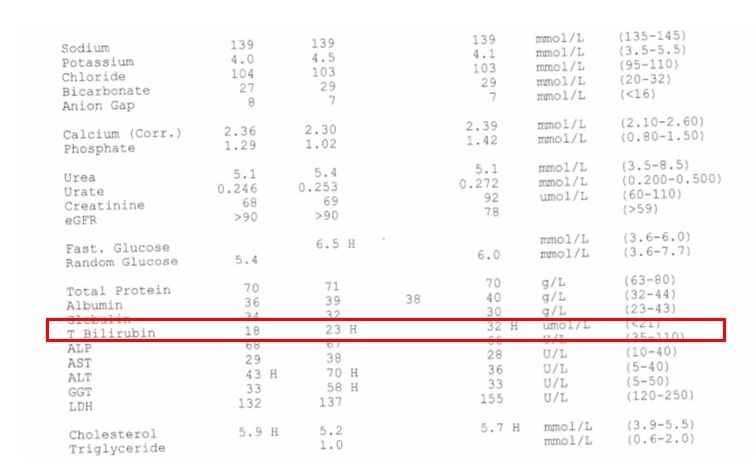
Continuously elevated bilirubin on Biochemistry blood test
Continuously high Bilirubin on Biochemistry blood test
The Syndrome was first described in 1901, affecting about 10-15% of Caucasians. With the higher incidence in Middle Eastern heritage (up to 25% of the population) and South-East Asians.
Summary of effects on the body from Gilbert’s Syndrome
- Predisposition to gallstones and gallbladder issues (more on this below).
- Slower intestinal motility and predisposition to SIBO(more on this below) and bowel flora imbalances, IBS and leaky gut. Often this is expressed via symptoms like nausea, food intolerances, bloating and ‘that heavy feeling in the stomach as if food sits there like a brick for hours’, and poor hunger in the morning.
- Anxiety and depression as well as mood fluctuations, panic attacks.
- Significantly reduced handling of paracetamol, aspirin and non-steroidal anti-inflammatories (NSAIDs) toxicity- the effects of these drugs on the liver of those with Gilbert’s is much greater than an average person and people with Gilbert’s need to exercise more caution with doses of these medications.
- Impaired handling of dopamine (our motivation and reward neurotransmitter) and estrogen. Clinically I find that when there are COMT and PEMT snps present combined with Gilbert’s, there is usually an issue with mood, anxiety, and depression. As well as definite estrogen dominance symptoms such as migraines, headaches, menstrual issues such as heavy bleeding/clotting and conditions such as endometriosis and fibroids as well as fibrocystic breasts and breast cancer.
- Poor stress tolerance, especially in a fasted state. People with Gilbert’s should avoid long periods of fasting,during which more Bilirubin is released.
The absolute key issue to address for anyone with Gilbert’s is gut health. If you are experiencing ongoing gut issues such as:
- pain
- feeling bloated with irregular bowel movements
- diarrhoea
- loose stools
- constipation
- or alternate between all of them
- food reactions and many others
My ONLINE PROGRAM – HEALING IBS – is an excellent start.
The Healing IBS program will guide you through a 5-week elimination and re-introduction diet as well as provide worksheets and recordings to re-program your stress response and calm your nerves, which calms the gut.
Gilbert’s Syndrome – Gut Symptoms
The UGT enzymes are expressed throughout the gastrointestinal tract, so issues in Gilbert’s can present as varying gut problems.
In the liver, glucuronidation is a key process in phase 2 detox, used to detoxify environmental toxins, pesticides, drugs, and hormones such as estrogen and testosterone, absorb fat-soluble vitamins A, D, E and K and produce melatonin.
In Gilbert’s, the enzymes (such as UGT) involved in this process are working far from optimally.
One of the functions of this liver pathway is to escort Bilirubin out of the body as it is a toxic by-product of metabolism. The liver conjugates (binds) Bilirubin by binding it to glucuronides. This function doesn’t work well in Gilbert’s Syndrome. Bilirubin ends up being only partially conjugated when mixing with bile, and this step is easily undone. It ends up being only partly conjugated.
Beta-glucuronidase is an important enzyme in the gallbladder, and large intestine that helps with this function- this enzyme is made by some gut bacteria species endogenously.
When Bilirubin comes in contact with beta-glucuronidase, it becomes unconjugated again and keeps circulating. Unconjugated Bilirubin is not water-soluble, which means the liver is not able to excrete it, so it just gets reabsorbed by the body again and again.
When glucuronidation is not working as it should due to genetic glitches or other liver pathology (sometimes alcoholism or drug use), the unconjugated Bilirubin builds up in the blood with toxic effects.
High Bilirubin impacts intestinal health negatively because it changes the behaviour of the intestine. It causes re-distribution of the tight junctions of the intestine, setting up a leaky gut and leading to food intolerances and parasite/bacterial overload.
A leaky gut has major implications for the functioning of the gut as well as a predisposition to autoimmunity.
Problems often manifest in the stomach- significantly delayed gastric emptying is very common. Studies have shown that in Gilbert’s, food stays in the stomach for up to 3 hours, which is roughly double the amount of time compared to those who don’t have Gilbert’s.
This is why people with Gilbert’s Syndrome often complain about burping and general upper gastric discomfort. At the same time, there is a tendency to have faster transit time in the intestine.
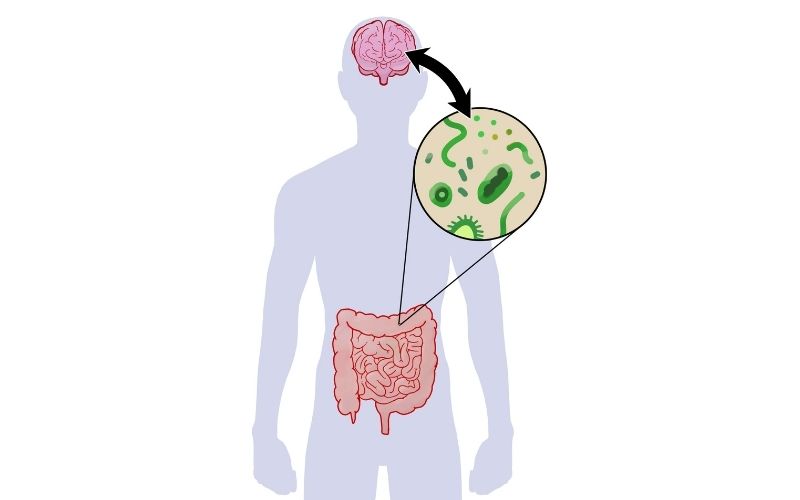
SIBO and Dysbiosis
The slower transit time often predisposes Gilbert’s people to SIBO (Small Intestine Bacterial Overgrowth) – an overgrowth of good and bad bacteria in the small intestine, where they are not meant to be or where there are not meant to be this many of them.
SIBO triggers many symptoms such as food intolerances, severe bloating and abdominal pain, often constipation but sometimes diarrhoea, reflux and even skin rashes and joint pains.
A common sign of SIBO is poor sugar and carb tolerance, so when people eat simple carbs like potato/sweet potato or fruits such as apples, they will get fairly immediate bloating/cramping/discomfort.
Nutrient deficiencies are always present with SIBO and will usually mean low levels of iron, magnesium, zinc, calcium and vitamin B12 as well as poor absorption of protein – thereby low levels of mood-enhancing amino acids. SIBO can also contribute to a leaky gut as the bacteria damage the intestinal lining leading to all the issues described above.
“Intestinal bacterial overgrowth occurs in several pathologic conditions and may result in increased bile salt and bilirubin deconjugation in the small intestine” ( Vítek, L and C. Carey, M, “New pathophysiological concepts underlying pathogenesis of pigment gallstones”, Clin Res Hepatol Gastroenterol. 2012 April ; 36(2): 122–129)
In the colon, the microbiome can be greatly influenced in Gilbert’s, predisposing to the growth of unfavourable species, particularly Clostridia species and Bacteroides Fragilis that process excess Bilirubin.
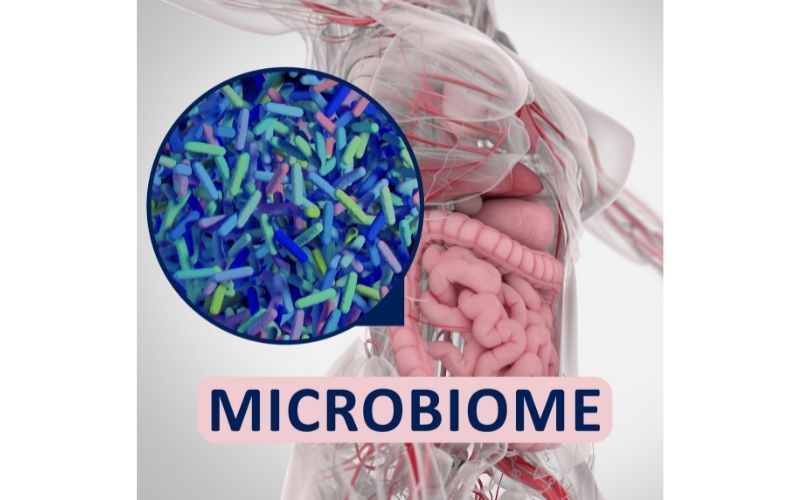
What we do know is that undigested starch in high carbohydrate diets and a high intake of refined sugars affects the metabolism of intestinal microflora and prolongs intestinal transit time, leading to perfect conditions for gallstones to develop, especially for those with Gilbert’s. (Vítek, L and C. Carey, M, “New pathophysiological concepts underlying pathogenesis of pigment gallstones”, Clin Res Hepatol Gastroenterol. 2012 April; 36(2): 122–129)
Gallbladder and Gallstones
The gallbladder is the critical organ for Gilbert’s Syndrome – the main highway for bilirubin excretion. What happens in Gilbert’s is that partly detoxified Bilirubin gets re-toxified in the gallbladder. This can lead to the formation of gallstones.
Having constantly high Bilirubin is a definite risk factor for gallstones and gallbladder sludge.
A study that looked at bile composition found that “The proportion of total bilirubin that was unconjugated was significantly higher in the bile from patients with stones than in bile from control patients” (Dutt M.K et al, “Unconjugated bilirubin in human bile: the nucleating factor in cholesterol cholelithiasis?’, J Clin Pathol 2003;56:596–598).
People with Gilbert’s have a higher rate of gallbladder issues such as gallbladder sludge, higher rates of ‘black stones’ (the most common gallstone that affects both children and adults). Increased Bilirubin reduces gallbladder motility, leading to this sludge formation:
“Increased proportions of unconjugated bilirubin in gallbladder bile may be a consequence of impaired gallbladder motility” and “Unconjugated bilirubin has been identified as a component of biliary sludge, which is believed to precede gallstones, particularly pigmented stones” (Dutt M.K et al, “Unconjugated bilirubin in human bile: the nucleating factor in cholesterol cholelithiasis?’, J Clin Pathol 2003;56:596–598).
Of course, not all Gilbert’s people have gallstones, but most will have symptoms of poor fat tolerance, such as nausea and poor ability to digest fatty foods and may feel pain in the diaphragm area.
Gilbert’s disease and the brain
Impaired bilirubin detoxification leads to impaired dopamine handling due to issues in the phase 2 pathway of the liver.
Impaired bilirubin detoxification leads to an increase in glutamate in the brain- glutamate is toxic to the neurons and damages the cell lining in the brain. Disturbing mood and sleep are often present during high levels of Bilirubin in Gilbert’s.
Also, because bilirubin build-up leads to increased intestinal permeability (leaky gut), the blood-brain barrier function in those with Gilbert’s will likely be altered, allowing for gut toxicity to impact the brain. This toxicity (from LPS- bacterial lipopolysaccharides) often leads to inflammatory conditions such as depression. Inflammation leads to nervous system stress and will always present with mood/brain issues.
This is an example of the gut-brain axis at work. Fascinating how everything is connected, isn’t it!
Usually, people experience diverse digestive symptoms that change from day to day and month to month, and often these have not been diagnosed by conventional medicine. The gastrointestinal tract is the way Bilirubin gets detoxified.
Clinically many of my clients suffering from long-term depression or anxiety often show up positive for Pyrroles and Gilbert’s Syndrome.
Fasting is completely contra-indicated for Gilbert’s Disease
No matter how often I have tried fasting or similar food restriction strategies over the last 20 years of dietary experimentation. I have never been able to do it well without significant detrimental effects like worsening gut issues, terrible mood and other ‘detox’ effects.
In truth, these are not detox effects but a massive spike in bilirubin levels produced by slowed gut function during fasting.
If you know you have high bilirubin levels. Even if you haven’t yet been diagnosed with Gilbert’s, you need to avoid long periods of fasting at all costs, as this will exacerbate gut and mental health issues over time.
What do I do if I have Gilbert Syndrome symptoms?
The first and most obvious is to look through your standard GP medical bloods under ‘Chemistry’ or ‘Biochemistry’ and read the Bilirubin line.
If it’s>15, you may have a problem. If you’ve had several historical readings >15 for many years, the chance you have Gilbert’s is very high.
Steps to take:
- Diagnosis: track bilirubin levels and do the genetic testing
- Education – things that increase Bilirubin include stress, fasting, synthetic estrogens, paracetamol, NSAIDs, recreational drugs that lead to high dopamine levels
- Take zinc! Zinc helps with anxiety, reduces glutamate, and binds unconjugated Bilirubin in the blood. To determine the correct form and dosage of zinc, see your trusted complementary health practitioner
- Support glucuronidation: several supplements can assist with liver detox function, Calcium d glucarate is one of them. Again, speak to your practitioner to ensure this is right for you.
- Support all phase 2 liver enzymes, particularly methylation, glutathionylation and sulfation, to reduce estrogen dominance. Cruciferous vegetables are great as they induce both glucuronidation and glutathionylation. For specific supplement support, speak to your practitioner. I also find liver function testing with each liver phase useful here.
- A lot of gut work throughout the stomach, liver, gut lining, and bowel to optimise digestion
- Antioxidants to reduce oxidative stress
Gilberts disease keys to treatment:
The goal is to get the unconjugated bilirubin levels into the ideal range and keep it there- this is a lifetime strategy due to the genetic nature of this condition.
- Reduce transit time and gastric emptying – speed up the rate at which food moves through the digestive tract. This will reduce the re-toxification of Bilirubin.
- Increase bile flow- reduces stagnation of bile in the gallbladder
- Improve fat absorption or correct malabsorption issues
- Acidify the colon- reduces beta-glucuronidase species (such as E-coli and clostridia).
- Improve positive microbiota- bacteria that reduce Bilirubin
- Improve gap junctions/ reduce leaky gut
- For inflammatory conditions such as IBD, colitis, and Crohn’s- more Bilirubin will be made to reduce haem (which protects the gut lining). When inflammation is present, it must be addressed as it is feeding into the bilirubin overload
- Support liver glucuronidation pathways
Addressing Gilbert’s in myself and my clients constantly has meant that this is a key area of research and practice for me.
Here’s how True Foods Nutrition can help with Gilbert’s Syndrome
- My new ONLINE COURSE for Gilbert’s Syndrome is here! The most complete resource on Gilbert’s Syndrome: Living with Gilbert’s Syndrome – True Health Synergy (simplero.com)
- Listen to my detailed podcast on Gilbert’s Syndrome with FX Medicine.
- You can also follow my Instagram page Gilberts_Syndrome_Support for all things Gilbert’s, my clinical insights and recommendations.
- Learn how to manage your Gilbert’s symptoms long term.
- Book in a consult with Clinical Nutritionist Maria Allerton.
- Start addressing your gut and mental health today via a self-guided online program formulated based on my clinic protocols.
Acknowledgements: thank you to one of my mentors, Rachel Arthur ND for the research and clinical insights into Gilbert’s Syndrome which I have used in compiling this information.

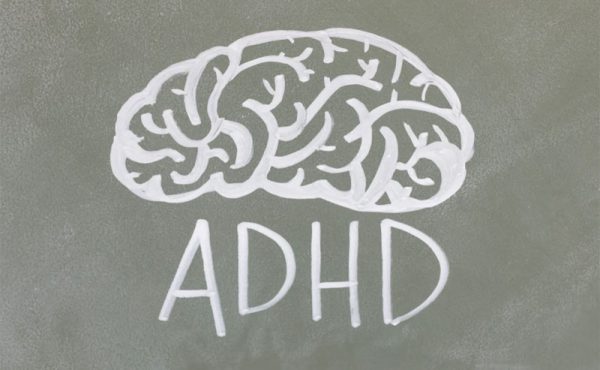
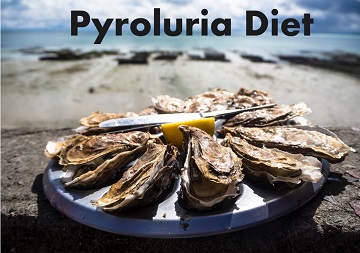
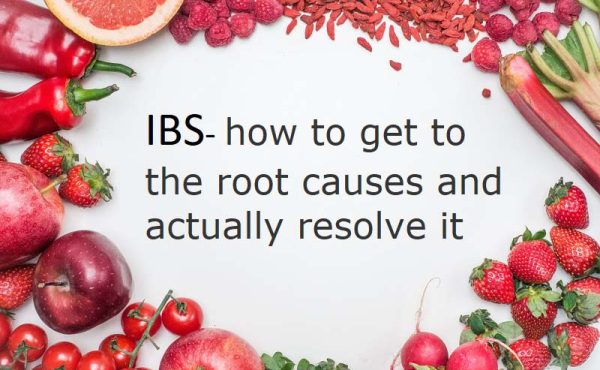
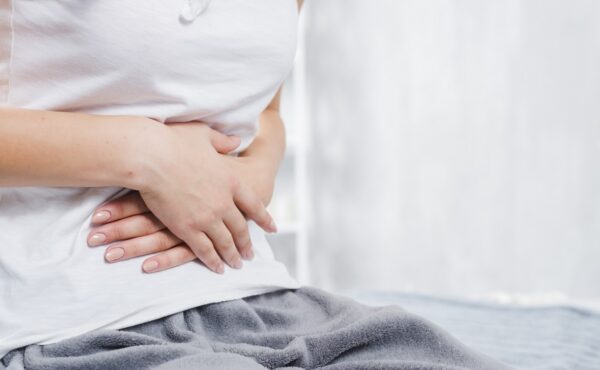



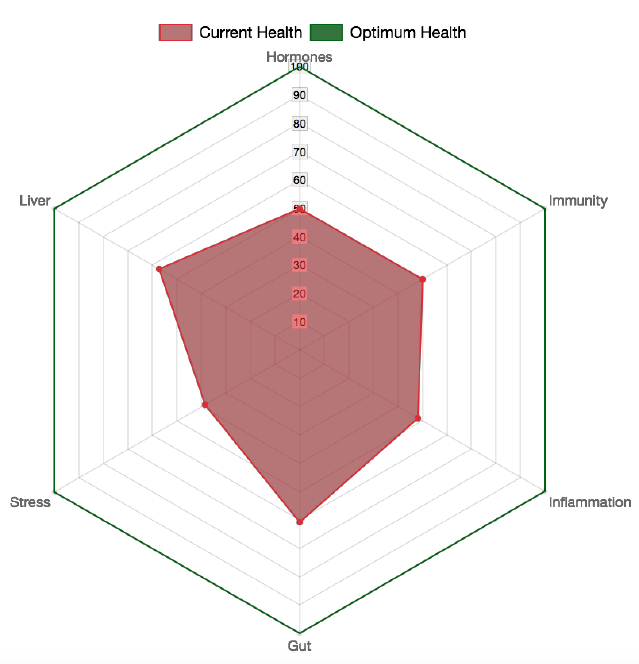


Hi! this is all me to a T however I dont have elevatedBilirubin levels…..is it possible to have normal levels but still have all these symptoms and this bew the missing link? also have you ever heard of air hunger being linked to GD?
yes these symptoms can occur without having GS or elevated bilirubin with other gut conditions
Thank you Dr Maria for the great article! I have done genetic test and downloaded my raw data file. Can you recommend where (app or report) I can analyse the raw data to confirm if I have Gilbert’s syndrome SNPs?
Hi Nadia, Thx! I’m not a doctor:)- a clinical nutritionist:)
You can upload your raw data into Stirling’s app on http://www.mthfrsupport.com and look for UGT snps in the variant report
Hi Maria,
Thank you for your work on this! I’m 25 and have been struggling with mold illness for the last three years, as well as GS. My mold-informed DR is helping but I am progressing so slowly due to an already slow detox pathway being even slower. The result is that I’ve developed multiple chemical sensitivities. What can I do to speed up my detox and lower my sensitivities assuming my diet and lifestyle are already as good as they can get for someone with GS?
Hi Grady, I recommend my online course on GS that has many strategies to optimise your health on GS, you will find it on my website, thx
Hi Maria, I was born with mild jaundice and have tested positive for Gilbert’s syndrome. I am slim and in my 50’s now and being assessed for Parkinson’s disease. I see a link with dopamine but is there a link with Parkinson’s? Is there anything I can do ? Your help is greatly appreciated. Thanks
Hi Andi, yes the Gilbert’s glucoronidation pathway is involved in dopamine handling. There are many root causes for Parkinson’s however. I recommend working with a practitioner, this is something I or my colleagues can help you address. thx
Hi Maria,
I am a 30 year old male and have Gilbert’s syndrome diagnosed in adolescence and I am trying to manage it with a good diet and stress management. However, I am trying to introduce a Calcium Glucarate supplement and have mixed feelings. On the one hand I see that it works, it detoxifies me and makes my eyes look much whiter.
On the other hand, when I take it a few days in a row (like 10 days), I begin to have a depression like symptoms and a burning sensation in the stomach accompanied by quite noticeable joint weakness. After stopping I feel a great relief and a couple of incredible window days with a very good sensation of clarity and then i come back to baseline but with a slight better sensation than before start detoxing. Does it make any sense? Could it be due to the brand of the supplement or maybe I don’t have to take it every day for maintenance?
Best wishes!
That’s an unusual reaction, hard to say. Best work with a practitioner to get the right supplement regimen
Hello, great article quick question on St. john wort have you ever tried it and does it reduce bilirubin levels?
I am interested in recipes please.
How much is online consultation?
https://www.truefoodsnutrition.com.au/product-category/bookings/nutritionist-maria-allerton/
Thank you so much for the information you provided in this article. I have GIlbert’s Syndrome and I have gallstones that have been very painful. I have a consultation to get my gallbladder removed. What are your thoughts about having the gallbladder removed when you have Gilbert’s Syndrome? I am worried it will make the stomach issues worse. 🙁
Hi Brooke, Thx.
Sometimes it’s inevitable, but ideally we are supposed to have all our organs for a reason:) I work to resolve the issues that contribute to dysfunction.
I have been suffering for 20 years from depression, anxiety, chornic fatigue, and severe insomnia… All tests were done every year and everything is fine except for chronic high bile for 20 years… Doctors diagnosed my condition as Gilbert’s syndrome and stated that no corrleation between my symptoms and gilbert’s syndrome!!! Is it possible that everything I’ve been suffering for twenty years is caused by this syndrome and high bilirubin?? I also suffer from very bad breath and its source is not the mouth. Is it related to Gilbert’s syndrome?? Is a coffee enema useful in this syndrome
yes it’s highly possible. Coffee enemas are best tried as part of a comprehensive supplement detox protocol, not on their own, i recommend working with a practitioner
Would heme iron supplements be generally contraindicated for people with Gilberts? I have iron deficiency without anemia and am using a heme iron supplement, which is thought to be better absorbed than non-heme forms of iron. Thank you for all of this amazing information!
You are very welcome. Iron supplementation needs to be assessed individually by your practitioner. Non-heme sources are not absorbed well
Wow!
Everything makes sense now with my symptoms since 1986 when I got Hepatitis from food then my life changed with anxiety, High bilirubin, headaches, depression, right side pain ( liver side) constipation, brain fog sometimes and dealing with 3 uterine fibroids sizes 2”, 4 and 7” since 2013. Obgyn recommended to get total hysterectomy now that I am menopausal person. It’s hard to manage stress and specially that I have a special needs son with several brain retardation and blindness. I need to start a new routine to have breakfast because I don’t get hungry in the mornings and my first meal of the day is around noon. ( constantly fasting which isn’t good for me because it makes me feel shaking.
I don’t feel alone with GS after reading the AMAZING information!! THANK YOU, THANK YOU 🙏
You are very welcome Evelyn x
Hi, Maria,
Thank you very much for your post, I think that it is very interesting and you provide a lot of information (I still need to listen to the podcast, to be honest). I have been experiencing a lot of different symptoms during the last years and I figured out that many of them, if not all of them, are closely related with Gilbert’s Syndrome.
I am sure that I have it because I was diagnosed with this condition about 10 years ago, with both blood tests (in fact, I needed to do a diet with really low calories during 2 days and it was probably one of the most horrible experiences of my entire life) and genetic test.
I realized that cutting off the sugar consumption I improve because, for example, I do not have heart palpitations and hand trembling so often. I figured out that high sugar foods triggered both symptoms. However, I still have it sometimes.
I replaced sugary things with more nutritious foods like nuts and fruits and I feel a bit better, but many other symptoms are still there. One thing that changed a lot for me is that, once I cut off sugar, I have appetite at breakfast time, thing that is absolutely incredible for me because I have been struggling with that almost my whole life. For me, even eating something as simple as a banana in the morning was a nightmare.
I am also thinking that I have trouble with gluten, as I have seen that Gilbert’s Syndrome and celiac disease could be closely related (despite I do not see very recent research about that. Most of the information that I have found was obtained in 2000s). I think like that, because I often have digestive problems when I eat outside.
The most critical thing related with this is that I have been living during 3 months in London, where I often ate things that can be quickly cooked in the microwave. I had a strange mixture between constipation and diahrrea almost everyday. However, when I came back to my hometown, where I eat much better, my digestive issues have improved significantly (however, I do not feel completely fine, anyway).
Once again, thank you for your article. It seems that I have an explanation to why I always struggled too much to gain weight. Maybe I have a kind of fat malabsorption (?). I do not know if you have any additional recommendation.
Hi Maria, thank you for the well researched article, hard to come across a practitioner like yourself who is willing to educate people. I have a 4 year old with quite a few health issues which I realise could all be due to Gilbert’s. He had jaundice for 4.5 month when he was born. I could not even find such a long case of neonatal jaundice described in scientific articles. Once he turned 4 weeks he plain refused to feed, which I found out later was due to a silent reflux he developed… I had to carry him for 1 hour to make him drink a single bottle of my expressed milk. Repeat 8 times in 24 hours…I bought multistrain probiotics and they helped with his filthy stools but feeding did not improve much. He always reacted terribly to paracetamol, it made him worse. Then after 3 doses of antibiotics he developed diarrhoea that lasted more than a year. He has always been off gluten and cows milk as it makes him super agitated. Hair analysis test showed most metals at very high levels. He is skinny, pale and gets tired easily especially when outside (suspect anaemia or thyroid since I have Hashimoto’s). I wonder if we could arrange for a single consult with you as limited with our budget? We have not done any blood tests due to covid as trying to avoid going out. Thank you..
Hi Anna,
i’ve sent you an email, thx
Hi Maria,
I just want to say that this is a fantastic article and very comprehensive. Growing up with Gilbert’s I have been told countless times that it is a benign issue with no concerns. The comments here and in other forum posts online show that the case isn’t that clear cut.
I find the consequens of high bilirubin -> gut permeability -> inflammation particularly insightful as it’s not obvious why issues such as anxiety or depression run along with this syndrome.
My most prominent issues are stomach discomfort, anxiety, slow transit of food and poor coordination of weak/tight PF muscles. Stomach symptoms were at there worst last year and I have to stay on top of diet/stress to keep things okay. Even as someone who rarely drinks I definitely need to do more work to address any gut issues I may have (luckily SIBO negative).
I wonder if you have noticed any patterns with GI stool tests from people with GS? Would be very interesting to read any research you do in this area!
Now if only it was easy to find a FM Dr in the UK who understands GS!
Hi Pete,
Thanks for your kind words, glad the info is helpful! No I haven’t noticed a pattern with Gilbert’s on stool tests, except they often have raised B-glucoronidase.
I work with clients across the globe.
Cheers
Great to find this.. good stuff.. I’ve just found out I’m positive! Why do people who have Gilbert’s have slow gut (or stomach) motility? Strangely enough I have a positive ANA with a type that’s been said to cause slow gut motility 🤔 Trying to put the puzzle together!! And how does one help speed it up? B vitamins? Magnesium moves the gut but is it the solution? And what does No.6 really mean… “ A lot of gut work throughout the stomach, liver, gut lining, bowel to optimise digestion”? Thanks 🙏
Hi Ahmed, glad you found the info useful. Every person with Gilbert’s is totally different so the gut work has to be individualised by the practitioner based on symptoms, health history and test results.
Thank you so much for spreading your knowledge about Gilbert’s Syndrome.
I have this condition and I have been fighting SIBO, depression, hair loss and thinning, unstable weight, hormone issues, food intolerances, and other issues my whole life. I always thought it was my fault.
I was “anorexic” and would throw up when I was a teenager. The “anorexia” was me responding to the hurt my stomach would feel because it would take so long to digest food. I said well, to hell with it and wouldn’t eat. Then I got to a point where I could only eat a few bites here and there. I was a wild child and went to raves and drank like a lot of people did and chalked up my bad memory and anxiety to side effects of partying. Which honestly is embarrassing, but I had no other reasoning. But a lot of other people did worse than I did, and were fine? I still do this day can’t drink anymore, haha.
Sorry for the long paragraph. If I could hug you, I would. I’ve been fighting my endocrinologist thinking I had low hormones, fighting my GP with tring different mental health medications… But I hated them all and none of them worked. I can’t take birth control either. Girl, I’ve been self medicating and self diagnosing left and right. I look like I’m in my 40’s, but I’m 27. I hope it’s true that people with GS may live longer. I feel like I’m going to make it to about 60 with this stress.
It’s such a relief to have found your page. Thank you so much.
THIS!!! you are very welcome Kaitlyn. Hugs to you too. I hope your health continues to improve.
I re-read this article again & listened to the podcast for the first time. Thank you, thank you, thank you!!
I was diagnosed with Gilbert’s this summer, and my doctor said it was no big deal and actually discouraged me from doing my own research on it. It has been life changing to find out more about my condition. It has completely changed my understanding of my reproductive history. It has shed light on how my body processes food and all the other things it comes in contact with. It has been really hard to find information on Gilbert’s, and your website has been incredibly helpful for me in learning more.
The podcast was given me so many actionable take-aways for my diet. I had a million light-bulb moments and a whole page of notes. Thank you!!
That’s fantastic Kiya, thx for the feedback. Of course we all need to have a deeper understanding of our health! that’s how we can learn how to address it.
Do you work with patients who are from another country?
Yes all the time via zoom:)
I have been so excited to find your blog about Gilbert’s Syndrome. This could explain a lot in my family’s physical and mental health. I needed more info than just being told it was a harmless condition. Harmless may be true in that death or major illness will most likely not occur, but a person can be harmed on a daily basis because of what is happening in their day to day functioning. I am so grateful for your blog! Thank you/
That’s exactly right Renee. Medical doctors seem to think that harm = death, it is all about how we feel day to day and optimal health, not just lack of disease.
I have been having elevated levels of billirubin for quite some time, also non alcoholic fatty liver disease. I have many of the symptoms of pyrrole disorder, but I do not have light hair or light skin…should I test for pyrroles? Thank you,
Jonette Olivier
Hi Jonette, i find clinically there is a lot of cross over between pyroluria and gilbert’s, both pyrolles and bilirubin are by-products of haem metabolism. It’s worth testing yes. Not many people fit all the characteristics, they vary quite a lot.
I was diagnosed with Gilbert’s by my gastroenterologist but I didn’t know that my chronic constipation, reflux, and bloating could all be related to it. I’m only 20 years old! Way too young to be having problems. It really struck a chord also because my aunt has had all the same symptoms throughout her lifetime and even needed to have her gallbladder removed! I’ve definitely noticed issues with severe brain fog lately and I thought that could be related also. I was told to take miralax daily and that fixed most of my stomach reflux and constipation issues but I was wondering if there was more I could do to help treat this myself! I’ve also been suffering from dry eye syndrome I think could be related to this, but in what way, I’m not sure. I thought maybe it could be B12 deficiency as a result of it, but I never had my vitamin levels checked to know. It was a hassle that took months to even get most of this figured out and a whole endoscopy and stomach emptying scan later for the gastro to come to the conclusion that I should just take miralax all the time. I also had trouble digesting fat, but the gastroenterologist just brushed it off and said it was normal. My aunt was on miralax for a very long time as well and had her gallbladder removed. I think the same thing is eventually going to happen to me.
This article opened my perspective a lot, but I’m wondering where I should go from here. Is there a better way to prioritize my health?
Any help is appreciated.
Thanks,
Riley
Hi Riley, If you’d like personalised help feel free to book a consult through the website. Kind regards
Hi Maria,
Many things started making sense when I learned that the last parts of a fetus to develop fully, during months 8-9, are digestive/eliminatory systems. My mother very stressed since she had a problem with late-term miscarriages (several). Thanks for your comprehensive articles.
Thanks for the feedback Sharon
This is the first article that I have read that is spot on with what I have been experiencing. I have always had high bilirubin and in my twenties I started experiencing skin and gut issues. I have spent several years adjusting my diet, which has helped. I would like to get more information and advice if possible.
Hi Sarah, feel free to fill in the new client application on the Book Now page to book a consult, thx
Hi Maria,
I have Gilberts and have struggled with digestion for years which eventually led to autoimmunity and CFS. I have confirmed gallstones. So much of what you say rings true!
I am now on a healing journey and have made huge progress through diet and supplements.
Do you recommend adding bile salts/Ox bile to my diet?
Thanks,
Jason
Hi Jason, thanks for you feedback. I can’t comment on any individual health issues without reviewing the whole case. Bile salts are pretty safe so you can give them a go and see if they improve your fat digestion.
I have been trying to deal with a perianal fistula for 10 years, and I forgot that I have Gilberts syndrome. as the fistula seems to be more related to gut issues of glilberts, as crones and celiacs tested negative, yet is more of a gluten allergy that tightens my lower anal muscle, where the fistula is. I am set to do the full open surgery rather then place a string threw it again, the only time it healed over was when I was drinking a special kombucha made just from dandelions. get surgery? or check in about the Gilbert syndrome first?
Hi Trent, sorry I can’t comment on individual medical issues
Hi,
What I want to know is if obstructive Sleep Apnea in 16th yo boy can lead to Gilbert’s syndrome rather than or only genetics?
Only genetics
Hi Maria – I have CFS and my bilirubin has been high in almost all of my blood tests for 20 years. I don’t have records going further back. Out of about 20 tests, only 2 have been normal, so I ruled out Gilberts – is it still a possibility?
My teen daughter just had her first blood test and guess what? Bilirubin at 19. Dr didn’t even mention it but I thought ‘hmmm’! She has low energy at times amd gut/mood complaints.
Lastly, as bacteria can cause the beta glucoronidase issues, can dysbiosis actually cause the high bilirubin and one not actually have GS after all?
Hi Yana, to know if it’s Gilbert’s for sure, a genetic test is required.
Hi Maria
I’ve recently been diagnosed with GS.
I am in Perth, WA. Can you recommend a good practitioner here for me to see to discuss diet and possible pyroluria testing ?
Thanks.
Ho Logan,
My team and I consult online nationwide and can order any test anywhere in Australia. I recommend you book in with my naturopath Elizabeth here: https://www.truefoodsnutrition.com.au/bookings/
cheers
I am a certified Nutrition Consultant myself and have a client with Seropositive RA as well as Gilbert’s Syndrome. I found your article on Gilbert’s Syndrome very informative and am wondering if you would be willing to share with me some of your strategies for working with this condition as it is new to me.
Hi Rachelle,
I do practitioner mentoring, feel free to book online under Education.
Kind regards
Wow! helpful info xx
Hi Maria,
Thank you for this great information. I too am a GS sufferer. I would really like an idiots guide to a section in the article please.
In the article it says that GS can cause:
Impaired handling of dopamine (our motivation and reward neurotransmitter) and estrogen.
Does this mean that dopamine and estrogen is high or low in the brain?
Also, does high bilirubin cause high levels of serotonin and low GAMMA?
I am trying to find out a link between anxiety, panic attacks and mild depression with GS.
Thank you so much for any help.
Regards
Clare
Hi Maria great article,
What do you know about the paleo keto diet with helping reduce bilirubin level? I read a number of articles in which looks quite interesting. I have GS myself and was wondering about your thoughts on this. Thank you
Hi, thanks for the article , just curious, can GS cause any permanent damage to the brain?
Yes it can if big enough quantities and long duration. That’s why jaundiced babies are given light treatment until cleared
Thanks, not sure what to do as I was diagnosed with this last year but show close to no symptoms, I have mild brain fog and that’s about it
HI Maria — great article! I just came to it via Rachel Arthur who posted today on GS and so I did a search. I realise you can’t comment on personal situations but is it possible to have GS without high bilirubin if all the other symptoms are present? On Ancestry there are 9 UGT1A1 genes. If there are several that are heterozygous is that an indicator or is there a specific one you look at and must it be homozygous? Would a positive pyroles test and a liver functioning test, showing the glucuronidation pathway not working effectively be strong indicators? Thanks.
Hi Miranda, thanks for your feedback. Yes, if there are no major issues billirubin can appear normal, in fact it can be normal in childhood until something ‘sets it off’. I would take several heterozygous SNPs to be strongly indicative of GS. Even though there is no proven relationship between pyrroles and GS, I do anecdotally see it in clinic together a lot. So need to look at all the pieces of the puzzle, cheers
Hi,
In period of 6 months I have given 3 times very high levels of bilirubin/total 1st time 49 n/mol 2nd time 52 and 3d time 59 n/mol/ and direct bilirubin levels around 17-20 n/mol
Everything else as AST ALT and all liver biochemistry enzyms were at a normal levels, I also had no other bad results in the rest of the blood test …my gastro tels me that I have GS and have to live with it…in the first place when i went to doctor I went because I had symptoms like stomach pain in right area under the liver but after all these visit by doctor /3-4 times already/ I couldn’t understand why sudenly from nowhere I had to feel pain in my lower back and symptoms more likely to lumbago or like pinched nerve or similar and I am start to think is it related somehow with GS, because last 2 months it is almost all the time pain in lower back and now I am afraid to use NSAIDS and use Ice or Heat compression, but in hospital told me that back pain is common and not related with bilirubinemea, but why now, why after I get started feeling pain first in the abdomen right and after i noticed the high bilirubin?
Hello, thanks for your comment. It’s very difficult to know the source of abdominal pain without further investigation. I recommend evaluating your diet and stress levels and addressing that to see if the pain will go. I now have an online program that will help with this: https://ibs.truehealthsynergy.com.au/
kind regards
Hi Maria,
Thank you for this article, huge help!
I’ve been finally diagnosed with GS last year through genetic test.
I’ve completely changed my eating habits and trying to avoid everything that may be harmful.
I do however still experiencing quite high anxiety..
I don’t really want to take any chemicals for that like propranolol and so on and I was wondering if you have any thought/experience with CBD oil? Help much appreciated! Best JJ
Hi Joanna,
thanks a lot for your comments. Sorry i don’t prescribe CBD oil so don’t have experience with it. There are plenty of natural solutions for anxiety involving nutrients and gut repair, feel free to reach out for a consult when you are ready, cheers
Hello, Maria:
Thank you very much for this information… It’ll take a while for me to digest it :-DD
Now, seriously: I’ve been diagnosed from GS. Although the doctor says that it’s just a non-harmful condition I experiment symptoms of muscle weakness and brain confusion. I started to take Vitamins and they made a lot (A LOT) of difference. I have also fell a more energetic state and a clearer mind when I take beer yeast (after reading your article, I guess it’s for the zinc in it, although I tried it for the Chromium).
My concern is about the fat-soluble vitamins. Do you think I can damage my liver if I take a vitamins pill per day? I have a very, very healthy diet but even so, I can only have a normal life if I take vitamins.
Unfortunately, I live right on the opposite side of the globe and my English is far from being usable for a consultation, so I’d really appreciate if you can reply here.
Anyhow, thanks again for your time writing this article and sharing your knowledge.
Hi Carlos,
thx for your message. Fat soluble vitamins cannot ‘damage’ the liver, it’s just a matter of how well they are being absorbed. I do skype consults internationally if you decide, cheers
Thanks for this article. A lot of information…I’ll need some time to digest it :-DD.
I’ve been diagnosed from Gilbert’s syndrome and what I’ve always complained about is muscle weaknesses and certain brain confussion, specially after fasting or sugar\fatty intakes.
I’ve discovered that vitamins supplements make a great difference. When I take them I feel much (MUCH) better. Beer yeast is very helpful to me as well (I guess it’s due to Zinc). I’m worried about fat-soluble vitamins. Do you think I could damage my liver with a daily pill of vitamins?
Thank you
Hi Maria
I v’got a question regarding Gilbert and everything in regard to high bilirubin levels.
My levels of bilirubin are high they going from 24-34-56-67-15-34 as you can see there is a lot up and down
My food is good but not enough to fix the problem
In the past before having high levels of bilirubin i got infected from HPV virus from my ex partner,…and even now days i’m dealing with some of those symptoms around my body.
When i had gallbladder out,..my liver had to small spots just like HPV from pictures ,..even though MRCP and ultrasound can’t detect them.
Obviously you know what is my question,..could this HPV an detected virus compromise cells in the liver,.and making people thinking they v’got a syndrome,..in fact it’s something else hidden
I seen many people profile who have Gilbert or high bilirubin levels,..and a lot of them v’got HPV spots in there face
We know jaundice or high levels of bilirubin is underlying cause ,..if that is the case , than HPV it’s very likely to interfere with a lot of organs,..this infection could be by blood stream and by accident
I really wanted to get un honest answer,…what do you think,..and could this fungal bacterial virus be the root of the problem and not the ghost Gilbert syndrome.
Hi, thanks for your comment. Unfortunately it’s not possible for me to make any personal recommendations without assessing your case. Feel free to book in a consultation, thx
This is very interesting. Maria do you have Gilbert’s Syndrome yourself (did you write this article). Thank you. Debbie
Hi Debbie, yes i do
Thank you,
I have felt so alone in a struggle with Gilberts that is constantly ignored as ‘benign’. No Hospital, doctor or health care practitioner seems to care or be concerned and one is left confused, misunderstood, or accused of an eating disorder in my experience.
I appreciate someone else witness to anecdotal evidence and symptoms … i still feel unsure of where to find help.
Hi Maria – wow, this article was a godsend!! I was diagnosed 25 years ago and, after the initial diagnosis when I was very jaundiced with very high bilirubin, I have not had significant issues. My physicals always show bilirubin on the very upper level or just above it (1.1-1.2 here in the U.S.). For the past couple of weeks, I have had sudden onset of very slow gastric emptying, it feels like food is just sitting in my upper stomach…all day long! Also migraine, some nausea and extreme anxiety/panic. Just got my blood results this morning and everything was fine except my bilirubin which is at 1.6 (it hasn’t been that high in 10 years probably). Then I happened upon your article and it explains so much!! I never knew that slow gastric emptying is common for GS. For a long time, I took both Ca-D Glucarate and Avmacol sulforaphane but ran out of both a couple of months ago and never re-ordered. Well, I’ll never make that mistake again! 🙂
Thank you so much for this excellent overview!
Irena 🙂
Hi Irena,
Thanks for your feedback, glad you are managing your condition ok. Ca D Glucarate is essential.
cheers
Maria – what is the science behind the connection bw. GS and slow gastric emptying? I am only able to find one small study done on rats. I am very curious about this as I have felt exactly what you wrote “Slower intestinal motility… and ‘that heavy feeling in the stomach as if food sits there like a brick for hours’” for two weeks now. I feel full all the time, though forcing myself to eat, as I do not want to lose weight. As I mentioned, I got the billirubin result the other day of 1.6 (higher than it’s been in a few years). So I would really like to understand the connection. Thank you!
Also to mention, it was an extensive bloodwork panel and everything else was completely normal, only elevated bilirubin. Also had an abdominal ultrasound which was clear.
This article helps me to cheer a bit as i am diagnosed with GS for quiet a some time now and my bilirubin fluctuates between (3-6 mg/dl). Recently i have been diagnosed with gall stone of approx 9mm. Is it risky to operate on gallstone if you have gilbert syndorme? what affects could it bring if gall bladder is removed of a person with gilbert syndrome, hope one can manage. Any suggestions would be grateful.
Hi Ashish, your doctor should be able to advise about gallstone operation. Anyone who has their gallbladder removed needs to have a dietary strategy in place, feel free to book in a consult here (https://www.truefoodsnutrition.com.au/clinic-bookings-2/bookings/) if you need personalised info. Kind regards
Hey Maria,
Thank you for this article it has been very helpful! I have done a DNA test on FTDNA (for ancestry purposes) I was wondering if you knew how I could order the UGT1A1 SNP from this site? I searched and search with no luck.
Also from time to time (once a year it seems) I become very tired and depressed it seems, I have foggy brain and when I move my head it feels like it’s moving a lot more than it actually is. Is this something that is associated with Gilbert’s? My doctor thinks it’s vertigo…
Hi Aaron, the best way is to order http://www.23andme.com gene profile and run it through the mthfrsupport.com app, then you will see the UGT snp. Sorry i can’t comment on any symptoms without understanding your whole case.
Hi Maria, excellent article, thank you! Myself and my twin have Gilbert’s, inherited from my father and his father. Do you think Gilbert’s can appear in a baby? My 9 month olds skin can appear yellow but her eyes are white (no jaundice at birth) and I’m wondering if she has inherited this, she has a negative blood type just like me (my other children do not). We’ve had issues with her being an ‘irritable’ baby and her sleep has been terrible. I’m wondering if this is could be effecting her? Thanks so much, Melissa
Hi Melissa, because Gilbert’s is genetically inherited that means that we are born with it, so yes your baby could have it. The only sure way to know is to do a saliva based gene test like 23andme.com to confirm UGT SNPs. There are numerous factors that affect babies’ sleep, it would be impossible to know if this is a factor.
I am interested in an online consultation with Dr. Maria but I do not know English. Do you know Spanish to be able to consult me?
Hi Marina, sorry i don’t speak Spanish, my only language other than English is Russian.
Hi Maria,
Thanks for sharing your knowledge it has been very helpful.
I have been diagnosed with Gilberts, however, i have also always had high GGT, AST, ALT liver readings. I have had every test done and ruled out all typed of problemd that cause liver damage.
Do you think there is a correlation between these high readings and Gilberts? I have recently started taking Cal-D-Clucarate and it will be inetersting to see if all readings come down not just bilirubiun.
Hi Colin, yes there is most likely a correlation and your liver could be trying to fight off a viral infection or deal with toxins.
Hi,
Where are you located? How does one take an appointment? What are your charges?
Thanks
Laxmi Maneklal
Hi Laxmi, i am in Sydney, Australia but do skype/online consults anywhere. All other details are here: https://www.truefoodsnutrition.com.au/clinic-bookings-2/bookings/
cheers
what foods to lower my elevated bilurubin?
i don’t think food alone is enough to lower elevated bilirubin, but good foods for Gilbert’s are: brassica vegetables and a diet low in saturated fats (fatty meat, coconut foods). Eliminating alcohol is also very helpful.
cheers
I was told I had Gilbert’s in 1995 when I was also affected by glandular fever and anorexia. The doctor said it was a benign condition that had no symptoms. I find it quite frustrating that despite having come across so many others who are symptomatic it is often dismissed. If I’m under a lot of stress my appetite disappears and I get run down. Is extremely itchy skin part of the Gilbert’s? As long as I’m not fasting things are manageable but the inflamed itchy skin persists especially in autumn/winter. Also, just a glass of wine makes me feel light-headed, is that part of the condition?
Hi Katherine, yes many Gilbert’s people share your frustration with lack of recognition within mainstream medicine. However, mainstream medicine is not the be all and end all:). Itchy skin is often a sign of liver congestion, as well as alcohol intolerance/poor tolerance.
Mam…i have lots of problm ….in 2017 doctor told me you have gilbert syndrome after that …my life becomes hell now i have lots of problm…like appetite weakness no feeling well anytime…brain issue lot of brain fog concentration problm…feel like the brain is not with me ….you are one who can help for ..all doctor said its harmless disease bt i dnt thik so plz help me what to eat what to do …it will with me life long or what mam or it will cure ??
Hello there,
I very much enjoyed this post as I have been struggling with recurrent SIBO for 3 years now. I was just diagnosed with Gilbert’s syndrome so I am trying to piece everything together. I have done 23andme before. How do I see if I have the genetic polymorphism? Thanks!
Hi Anna, you need to upload your 23andme raw data to any of the analyser apps, such as http://www.mthfrsupport.com and look for UGT snp. Feel free to reach out if you need help managing your conditions. cheers
Hey Maria,
my billirubin level is at 2.3 mg/dl. I suffer from nausea, vomiting in the morning and diarrhea.
All of these symptoms come with anxiety, panic attacks and moodswings.
Is it important to take zinc sulfate? ( i dort find and in germany) or is any kind of zinc good.
Maybe one consultant Session could be helpful.
Greetings
Simon
Hi Simon,
yes as per my blog zinc sulfate is a good start. More than happy to go through your case in detail, please book in a consult online on the homepage. Pls note time difference,
cheers
Mam…i have gilbert syndrome from last 2 and half year….
My bilirubin is 2.38 now …is goes high to 4 ….mam i have problem like appetite…and a brain issue …I FEEL LIKE MY BRAIN IS NOT WITH ME when i talk to someone its feel like empty empty in the brain ..and concentration problem
And mam gilbert can damag3 my brain or what??please help
Hi Gaurav, yes it can, bilirubin is toxic to the brain in high amounts as it produces oxidative stress. Feel free to reach out if you need help managing this condition. cheers
What to do now mam please help me…
It will not cure …na mam..can i die from this?gilbert syndrome…or it can damage my brain how much is there any serious risk of it ?? Give me a solution how to maintain it please mam
Amazing information! I have recently had a blood test and my bilirubin level was 15 but I have had nausea and anxiety problems for weeks but been well for years since my first flare up of GS and probable diagnosis so I was so surprised my levels were within the normal marker, I have had a lot of stress lately however but could the zinc be beneficial for the anxiety,I’m sure the nausea sets off the anxiety,I take a mild getabloker for ectopic beats too
Hi Joanne, thanks for your comment.Yes stress can elevate bilirubin levels but the key thing you need to look at is whether it is consistently elevated. 2-3 elevated readings make Gilbert’s more likely, or test for the gene. Let me know if you need more help, I do skype consults worldwide.
Hi Maria,
Are there any zinc supplements you can recommend? Will taking zinc cause copper deficiency?
Thankyou for the great information!
Jack
Hi Jack, thanks for your comment. The type and dose of supplements is highly individual and yes needs to be carefully monitored with blood and hair testing to ensure it’s appropriate.
thx
Hi Maria, i would like to thank you so much for this amazing article, my tottal bilirubin was getting higher over the years its only came back inti the normal range on 2014 then started elevating again…
Normal range in the uk is (0 to 20) umol/L
2013 …… 24
2014 ……17
2015 …….26
Jan 2022 ….28
Apr 2022…..31
Jan 2023 ….38
I would like to ask also about my mean cell haemoglobin concentration is 37.6 g/dl
Normal range is (32 to 36) g/dl
I was thinking this rise was because i have been eating loads of red meat reacently???? Or is it to do with the rise of my tottal bilirubin which is now 38 ????
My chloride is 106 which is on the high end of normal range and my HDL is 0.38 which is really low…
I also have a condition calked MGUS which is a precancerous condition of many sorts of blodd and bone marrow cancers, mine is pretty low and is concidered low risk so far… I have parathesia which is my arms go numb at night if i sleep on it and dont change position… Or if i hold my phone still in one position for a bit if time…. Do you think it might be caused by too much fat in the blood ?? (my triglycerides are within the normal range thou) and hopefully i don’t have amyloidosis… Which i don’t think i have….
Sorry for the long message, i just started reading your article by a chance and felt very confortable with the accurate information in it, thanjs once again, have a lovely weekend.